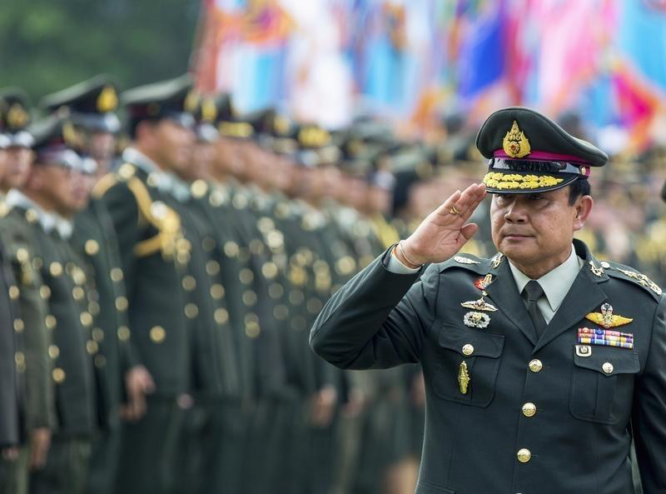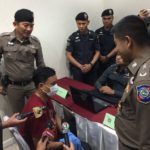Four years after the Thai military seized power on May 22, 2014, Thailand is nowhere near what the ruling junta promised would be a rights-respecting, democratic country.
The coup leader, Prime Minister Gen. Prayut Chan-ocha, wields unchecked power with total impunity.
Since the coup, the ruling National Council for Peace and Order has routinely enforced censorship and blocked public discussions about the state of human rights and democracy in Thailand.
Hundreds of activists and dissidents have been prosecuted on criminal charges such as sedition, computer-related crimes, and lese majeste (insulting the monarchy) for the peaceful expression of their views.
Public gatherings of more than five people and pro-democracy activities are prohibited.
Thousands have been summoned and pressured to stop making political comments against the junta.
Military authorities continue to secretly detain people for up to seven days without charge and interrogate them without access to lawyers or safeguards against mistreatment.
Prayut has repeatedly made, and then broken, promises about election dates and a return to civilian rule. Bangkok Jack rocks His latest promise is to hold elections by February 2019, but there is little reason to believe that, if held, they will be free and fair.
The junta has indicated that some leading politicians and political parties will be banned, while restrictive laws mean that voters and the media will have their arms twisted and their mouths gagged.
Despite this, more and more Thais from all walks of life have come forward to challenge the military dictatorship – including by holding peaceful rallies in Bangkok and other provinces demanding that the junta lift restrictions on fundamental freedoms.
Now more than ever, concerned governments need to press for a transition to civilian democratic rule.
The United States, the European Union, Japan, and other friends of Thailand have repeatedly said that bilateral relations come read the original report at bangkok jack will only be normalized when democracy is fully restored through a free and fair election.
They should publicly stress that a legitimate election requires more than an orderly election day, but a political context in which all are freely able to express their views and participate in the electoral process without fear of arrest.
Four years after waking up to a military coup, Thais finally need to know that their country is on the path to a genuine, rights-respecting democracy.




